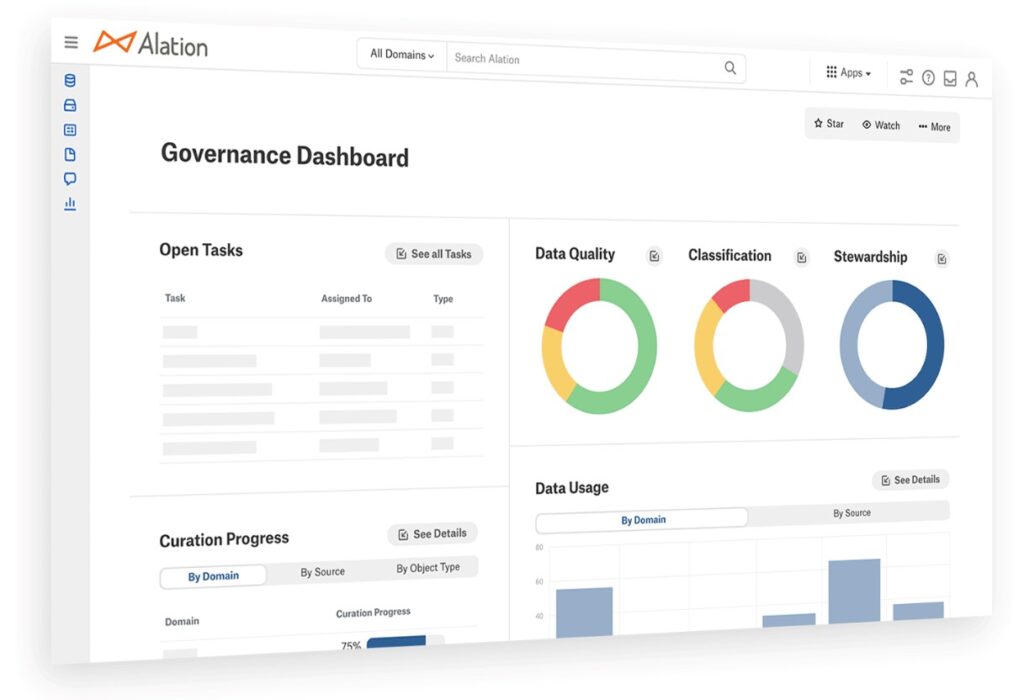
How Business Intelligence Software Supports Data Governance
In today’s data-driven world, organizations are facing increasing pressure to make informed decisions, improve operational efficiency, and reduce risk. To achieve these goals, businesses rely on high-quality data that is accurate, complete, and consistent. However, managing large volumes of data from diverse sources can be a daunting task, especially when it comes to ensuring data quality, security, and compliance. This is where data governance comes in – a framework that ensures the effective management of an organization’s data assets. Business intelligence (BI) software plays a critical role in supporting data governance by providing tools and capabilities that enable organizations to manage, analyze, and report on their data.
What is Data Governance?
Data governance refers to the overall management of an organization’s data assets, including the processes, policies, and procedures used to ensure data quality, security, and compliance. It involves establishing a framework that defines roles, responsibilities, and rules for managing data across the organization. Effective data governance enables organizations to:
- Ensure data quality: Verify that data is accurate, complete, and consistent across different systems and applications.
- Maintain data security: Protect sensitive data from unauthorized access, theft, or damage.
- Comply with regulations: Adhere to relevant laws, regulations, and industry standards related to data management and use.
- Improve data sharing and collaboration: Enable authorized personnel to access and share data across departments and functions.
How Business Intelligence Software Supports Data Governance
BI software supports data governance in several ways:
- Data Integration: BI tools can connect to multiple data sources, integrating data from various systems, applications, and sources. This enables organizations to create a unified view of their data, reducing data silos and improving data consistency.
- Data Quality and Validation: BI software can perform data quality checks, such as data profiling, data cleansing, and data validation. This helps identify and correct data errors, inconsistencies, and inaccuracies, ensuring that data is reliable and trustworthy.
- Data Security and Access Control: BI tools can implement robust security measures, including authentication, authorization, and encryption. This ensures that sensitive data is protected from unauthorized access, theft, or damage.
- Data Governance Framework: BI software can provide a framework for data governance, including data dictionaries, metadata management, and data lineage. This enables organizations to establish a common understanding of their data, track data provenance, and maintain data integrity.
- Compliance and Reporting: BI tools can generate reports and dashboards to support compliance with regulatory requirements, such as GDPR, HIPAA, and CCPA. This enables organizations to demonstrate their commitment to data governance and compliance.
- Data Analytics and Visualization: BI software can provide advanced analytics and visualization capabilities, enabling organizations to gain insights into their data, identify trends, and make informed decisions.
- Collaboration and Data Sharing: BI tools can facilitate collaboration and data sharing across departments and functions, enabling authorized personnel to access and share data in a controlled and secure manner.
Benefits of Using Business Intelligence Software for Data Governance
The benefits of using BI software for data governance are numerous:
- Improved Data Quality: BI tools help ensure that data is accurate, complete, and consistent, reducing errors and inconsistencies.
- Enhanced Data Security: BI software provides robust security measures, protecting sensitive data from unauthorized access, theft, or damage.
- Increased Compliance: BI tools support compliance with regulatory requirements, reducing the risk of non-compliance and associated penalties.
- Better Decision-Making: BI software provides advanced analytics and visualization capabilities, enabling organizations to gain insights into their data and make informed decisions.
- Improved Collaboration: BI tools facilitate collaboration and data sharing across departments and functions, enabling authorized personnel to access and share data in a controlled and secure manner.
- Reduced Risk: BI software helps identify and mitigate risks associated with data management, such as data breaches, errors, and non-compliance.
- Increased Efficiency: BI tools automate many data management tasks, reducing manual effort and improving efficiency.
Best Practices for Implementing Business Intelligence Software for Data Governance
To get the most out of BI software for data governance, follow these best practices:
- Establish a Data Governance Framework: Define roles, responsibilities, and rules for managing data across the organization.
- Choose the Right BI Tool: Select a BI tool that meets your organization’s specific needs and requirements.
- Implement Data Quality and Validation: Use BI tools to perform data quality checks and validation, ensuring that data is accurate, complete, and consistent.
- Enforce Data Security and Access Control: Implement robust security measures, including authentication, authorization, and encryption.
- Provide Training and Support: Ensure that users are trained and supported in the use of BI software for data governance.
- Monitor and Evaluate: Continuously monitor and evaluate the effectiveness of BI software for data governance, making adjustments as needed.
Conclusion
In conclusion, business intelligence software plays a critical role in supporting data governance by providing tools and capabilities that enable organizations to manage, analyze, and report on their data. By using BI software, organizations can improve data quality, enhance data security, increase compliance, and make better decisions. To get the most out of BI software for data governance, it is essential to establish a data governance framework, choose the right BI tool, implement data quality and validation, enforce data security and access control, provide training and support, and monitor and evaluate the effectiveness of BI software. By following these best practices, organizations can ensure that their data is managed effectively, reducing risk and improving overall performance.
Closure
Thus, we hope this article has provided valuable insights into How Business Intelligence Software Supports Data Governance. We thank you for taking the time to read this article. See you in our next article!


